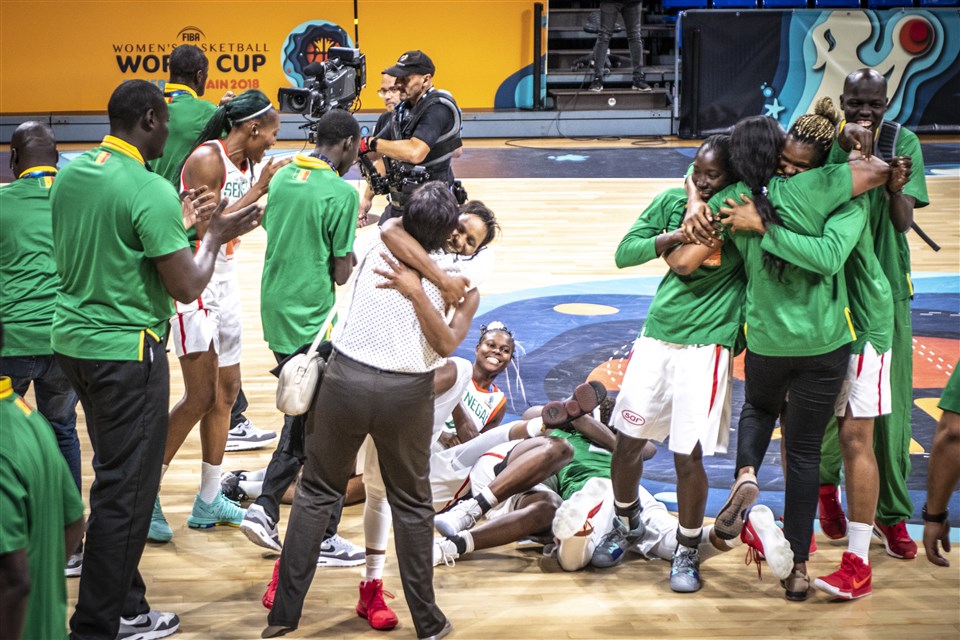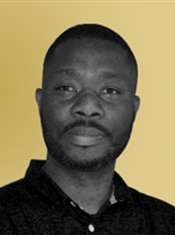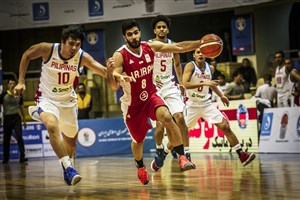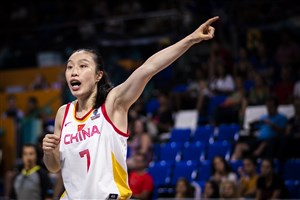
Senegal and Nigeria have sent a message at FIBA Women's Basketball World Cup 2018
SHEFFIELD (Julio Chitunda's African Message) - Senegal and Nigeria wrote a new African basketball chapter at FIBA Women's Basketball World Cup 2018, and the world took notice.
For years, African teams defined world stage competitions as learning platforms, where winning games, especially against European opposition, was a mirage, because of the huge competitiveness gap between those countries' level of basketball.
“THEY (AFRICAN TEAMS) HAVE BROKEN SOME HISTORY, AND SURELY IN INTERNATIONAL PLAY TO COME, THEY WON'T BE LOOKED OVER
Senegal, Kenya, Mali, Tunisia, Angola, Madagascar, Mozambique, Nigeria, and Zaire (now Democratic Republic of Congo), all have represented the continent in the World Cup over the past four decades, but it's the just concluded 2018 edition of the tournament that proved to be the turning point Africans dream of.
Senegal and Nigeria have sent a message to the world, indicating they joined the world basketball elite, where they believe they belong.
And September 23rd should be declared African women's basketball day for good reasons.
That was the day when Senegal beat Latvia 70-69, and Nigeria - the lowest ranked team in the entire competition (No.34 in the World) - knocked down top-10 Turkey 74-68 to mark African teams' first-ever victories in a Group Phase of a FIBA Women's Basketball World Cup event.
What a #FIBAWWC game between 🇸🇳 Senegal & Latvia 🇱🇻!
— FIBA (@FIBA) September 23, 2018
Game Highlights ⤵ @Basketbols @FSBBOFFICIEL @FIBA_FR pic.twitter.com/PkBRzrf7HC
No African team had ever advanced out of the preliminary round, but Senegal and Nigeria did, and the latter went on to become the first African team to reach the World Cup Quarter-Finals.
📽 Highlights of the historic victory of Nigeria over Greece in the Quarter-Final Qualifications of the #FIBAWWC! @NBBFOnline @HellenicBF
— FIBA (@FIBA) September 26, 2018
📊 https://t.co/9epqjn6B0M pic.twitter.com/O5kHcr7rC9
Was it surprising to see two African nations finishing eighth and twelveth, respectively, in the 16-team competition in Tenerife, Spain?
As a journalist who has covered African basketball for over a decade, the only surprise to me was to realize how little, teams, fans, journalists and scouts knew about these two African teams.
 But the world took notice after Australia needed to step up to defeat Nigeria, and Australia's top performer Liz Cambage later admitted that Nigeria was a "tough team" to beat.
But the world took notice after Australia needed to step up to defeat Nigeria, and Australia's top performer Liz Cambage later admitted that Nigeria was a "tough team" to beat.
Cambage's comments were followed by USA head coach Dawn Staley' assessment of African teams, noting that "We’ve been fortunate, or unfortunate, to play to both teams, and they played us extremely well."
The three-time Olympics champion added: "The African teams have certainly have had history on their side, meaning that they haven’t broken through by getting wins. They’re well coached. They’re very disciplined in their style of play, and they don’t bend for anybody. When you go up against teams like us and play your style of play, you believe in it, and you start getting us to make adjustments to how they’re playing, you will win a lot more basketball games than not. They have broken some history, and surely in international play to come, they won’t be looked over. They weren’t looked over by us by any means. We know what they’re bringing to the table, and we certainly have to prep for them."
And FIBA Africa's President Hamane Niang was in Tenerife to witness history being made. The Malian-born official noted that "Africa has learned lessons from the past and now the likes of Nigeria and Senegal have shown they can play against top teams. I salute this performance. We need for this to spread to the rest of Africa because we deserve better.”
With the FIBA Women's Basketball World Cup done and dusted, it's fair to say that African basketball is definitely moving in the right direction.
Stay tunned for the 2019 FIBA Women's AfroBasket.
Julio Chitunda
FIBA
FIBA's columnists write on a wide range of topics relating to basketball that are of interest to them. The opinions they express are their own and in no way reflect those of FIBA.
FIBA takes no responsibility and gives no guarantees, warranties or representations, implied or otherwise, for the content or accuracy of the content and opinion expressed in the above article

















